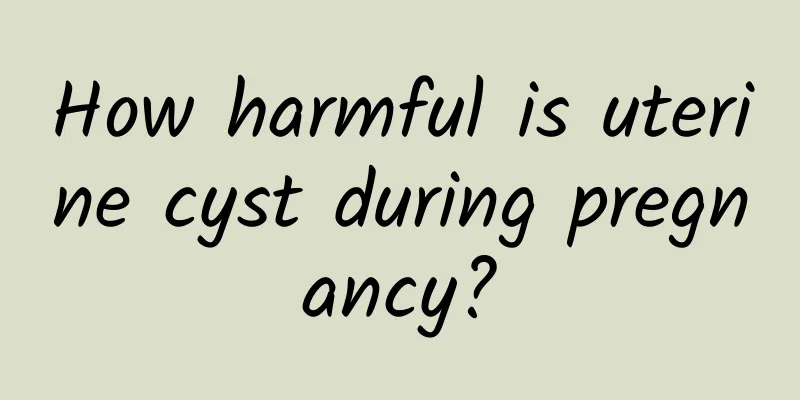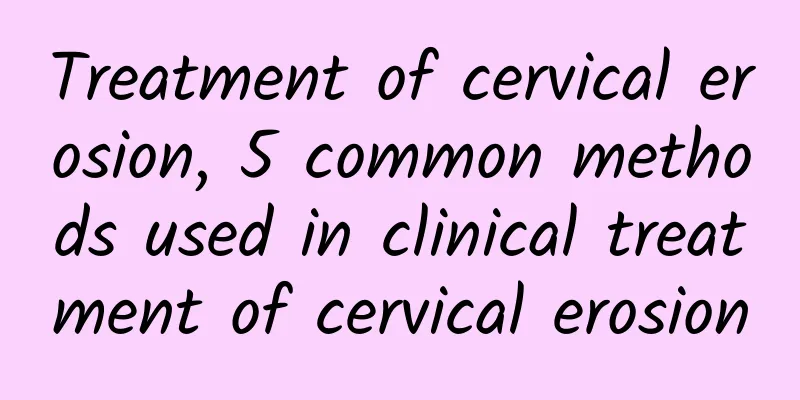Will pelvic peritonitis heal on its own?

|
Pelvic peritonitis is an inflammatory disease of the pelvic peritonitis. It is a group of diseases caused by inflammation of the female upper reproductive tract, including endometritis, salpingitis, tubo-ovarian abscess and pelvic peritonitis. Most of them are mainly manifested by pain, accounting for more than 90%. Therefore, when women experience pain, they should be alert to the occurrence of pelvic peritonitis. Some patients think that pelvic peritonitis does not need treatment because it will heal itself. So will pelvic peritonitis heal itself without treatment? In this regard, let's listen to the experts' introduction. In response to this question, the gynecologist said that pelvic peritonitis will not heal on its own, because it is characterized by a long course of illness, stubborn condition, and acute attacks when the immune system is poor. Not only will it not heal on its own without treatment, but it will also become more and more serious. Because inflammation will not disappear on its own, and its cause of onset is special. Not only will it not heal on its own, but even if it is cured, it is easy to relapse. Therefore, the patient's solution is to achieve early detection and early treatment in order to strive for a complete cure. Symptoms of pelvic peritonitis: There are two types of pelvic peritonitis: acute and chronic. The main symptoms of acute pelvic peritonitis are lower abdominal pain, fever, and increased vaginal discharge. The abdominal pain is persistent and worsens after activity or sexual intercourse. If the condition is severe, there may be chills, high fever, headache, and loss of appetite. Those who develop the disease during menstruation may experience increased menstrual flow and prolonged menstruation. If pelvic peritonitis wraps around to form a pelvic abscess, it may cause local compression symptoms. Compression of the bladder may cause frequent urination, painful urination, and difficulty urinating; compression of the rectum may cause rectal symptoms such as tenesmus. Further development of acute pelvic peritonitis can cause diffuse peritonitis, sepsis, and septic shock, and severe cases can be life-threatening. Chronic pelvic peritonitis is caused by the failure to completely treat acute pelvic peritonitis or the poor physical condition of the patient, resulting in a prolonged course of the disease. The main symptoms are lower abdominal distension, pain and soreness in the lower back, which are often aggravated after fatigue, sexual intercourse and before and after menstruation. The second is abnormal menstruation. Some women may experience neurasthenia symptoms such as lack of energy, general discomfort, and insomnia after a long course of the disease. It often does not heal for a long time and recurs repeatedly, leading to infertility and tubal pregnancy, seriously affecting women's health and increasing the family and social economic burden. The above is an introduction to whether pelvic peritonitis can heal itself. I hope it will be helpful to you. |
<<: Can chronic pelvic peritonitis be cured?
>>: How long does it take to cure pelvic peritonitis?
Recommend
How should women check for cervical erosion? Three methods for rapid diagnosis of cervical erosion in women
Cervical erosion is a gynecological disease that ...
Can I drink saffron for pelvic inflammatory disease? Pay attention to the dosage
It is certain that saffron can be taken for pelvi...
What is the best way to treat moderate cervical erosion? 3 causes of moderate cervical erosion
The treatment method mainly includes the followin...
What is vulvar leukoplakia?
What does vulvar leukoplakia look like? 1. Vulvar...
What are the causes and classifications of amenorrhea?
Whether it is primary amenorrhea or secondary ame...
Don’t be afraid of starch when losing weight! Eat more of these 6 foods
"Starch is innocent!" Many people menti...
The main causes of vulvar leukoplakia that female friends should know
Vulvar leukoplakia is a gynecological disease tha...
How to care for endometrial tuberculosis during pregnancy
Although endometrial tuberculosis is divided into...
What are the causes of dysmenorrhea?
Dysmenorrhea causes great physical harm and pain ...
What is the best treatment for Bartholinitis?
Bartholinitis is a common disease among women. In...
What diseases can thick endometrium cause?
A thick uterine lining may cause abnormal uterine...
What does cervical erosion-like changes mean? What should I do if it happens?
Cervical erosion-like changes refer to inflammati...
What are the characteristics of female patients with congenital absence of vagina?
What are the symptoms of congenital absence of va...
What to do if bacterial vaginosis occurs during mid-pregnancy
Bacterial vaginosis is a type of vaginitis mainly...
What are the causes of right ovarian cysts and what foods are suitable for patients
What is the cause of right ovarian cyst? What foo...









